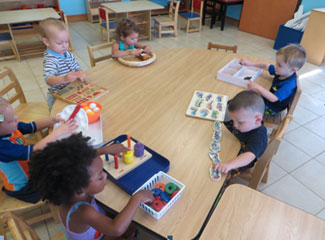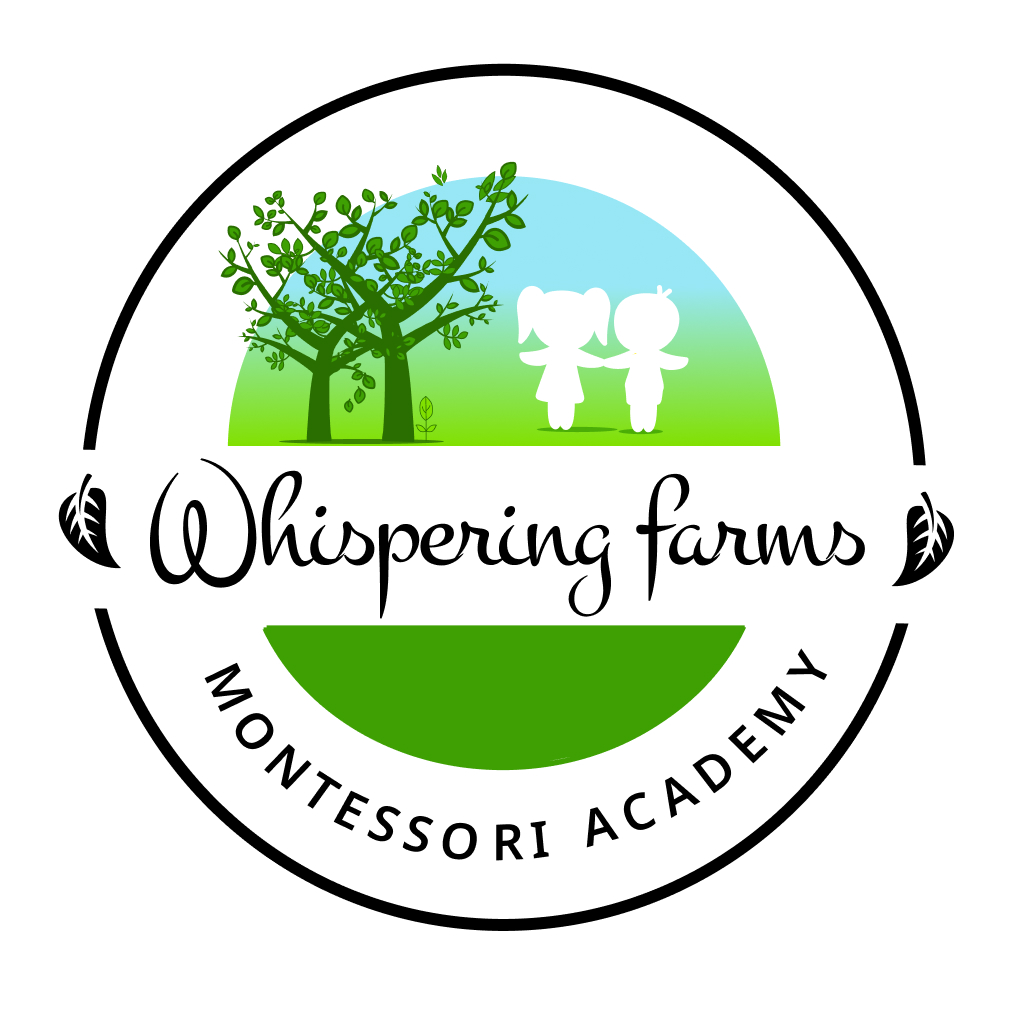Transition Classroom (Ages 2-3 years old)

What to Expect
- In the Transition Classroom, children begin their Montessori journey, exploring key areas like practical life, sensorial, language, and math. These foundational lessons help foster independence and curiosity.
- At this stage, children will drink from regular cups during class time, so please leave sippy cups at home.
- As children continue learning to co-exist with their peers, they’ll work on establishing boundaries, often expressing themselves with words like “NO” and “MINE.” Hitting and occasional biting may occur as they navigate social interactions, but we work closely with the children to help them develop positive communication skills.
- Due to their high activity level, children may trip or fall, resulting in bumps or bruises. If this happens, we will immediately notify you and send home an “owie” report with the details.
- Feel free to reach out to the teacher or director with any questions at any time.
- Your child will be provided with a nap mat and blanket from school.
- We also encourage children to go without pacifiers during school hours. If your child still uses one, it will be stored in their backpack. Pacifiers can impact both hygiene and language development, as they can interfere with forming sounds needed for speech. We are actively helping the children expand their vocabulary and communication skills.
What to Bring
- Velcro side Pullups
- Wipes
- Two changes of season-appropriate clothing in a 2-gallon Ziploc bag, labeled with your child’s name
- A backpack to carry items to and from school
What Not to Bring
- Toys or stuffed animals: While it may seem easier to send your child with a favorite toy, this can lead to issues in the classroom. If another child has the same toy, confusion and conflict can arise. Additionally, toys from home may carry germs. For everyone’s health and emotional well-being, we encourage keeping personal toys and stuffed animals at home.
Health & Safety
The safety and well-being of your child are our top priorities. If your child has any allergies, medical conditions, or specific needs, please notify us so we can make the necessary adjustments to ensure they receive the best care. We also encourage you to keep your child home if they are unwell to help prevent the spread of illness.
Parent-Teacher Communication
Building a strong partnership with you is key to your child’s success in this stage. If you have any questions or concerns, or if there are changes in your child’s routine, please don’t hesitate to speak with the teacher or director. We strive to keep an open line of communication and work together in supporting your child’s growth.
Separation Anxiety
Many children experience separation anxiety during this transition period. Please know that this is a normal part of development, and our caring staff will work closely with your child to ease them into the routine and help them feel safe and comfortable. If your child struggles with separation, we’ll keep you updated and work together to make the transition smoother.
Encouraging Independence
One of the key goals in the Transition Classroom is to help your child develop independence. Whether it’s self-help skills like putting on their jacket, wiping up spills, or beginning the potty training process, we celebrate each small step they take toward becoming more self-reliant.
Transition to the Next Stage
As your child gets closer to the age of 3, we’ll start preparing them for the next stage of their Montessori journey. The skills they develop here, such as language, social interactions, and basic practical life tasks, will set a strong foundation for their future learning. We work closely with families to ensure a smooth transition when it’s time for your child to move up to the next classroom.
